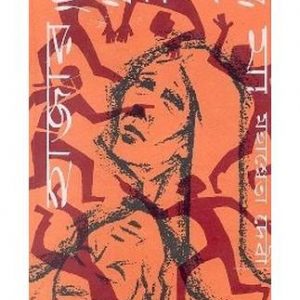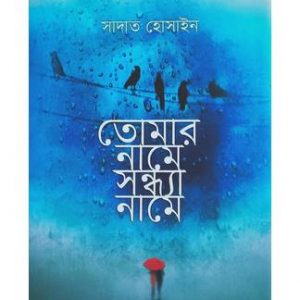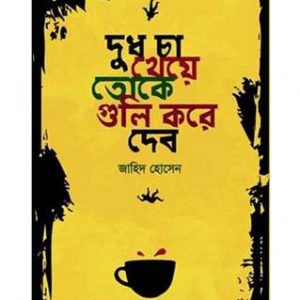| Title | হাঁসুলী বাঁকের উপকথা |
| Author | তারাশঙ্কর বন্দ্যোপাধ্যায় |
| Publisher | দি স্কাই পাবলিশার্স |
| ISBN | 9848261117 |
| Edition | 1st, 2014 |
| Country | বাংলাদেশ |
| Language | বাংলা |
হাঁসুলী বাঁকের উপকথা – হাঁসুলী বাঁকের উপকথা
৳ 390.00 ৳ 290.00
hasuli-vaker-upokotha-tarashonkor-bondopadhai book review:
Banshibandi village 6 on the banks of Kopai river In all, thirty houses belong to whose tribe The Kahars were divided into two neighborhoods. Behara Para and Atpaure Para. Some of the people of the two neighborhoods mean ‘Kartababa’ very much Their rituals, their joys and sorrows, their deeds, their laughter and their tears all surround that place. In someone’s society, men’s and women’s body games (Premlila), marriage-sanga, alcohol party, master’s injustice, agriculture, cursing each other are all eternal, all are traditional. If there is a war in the world, the fate of some people will burn Even if everyone agrees with these people, it doesn’t mean that He does not do these agricultural works and works as a laborer on the railway line in distant Chandanpur. He doesn’t mean anyone with determination. Matwari of Banwari Kaharpara. Whose traditional policy is followed. The conflict between Banwari and Karali can be seen in breaking this tradition. Karali slowly breaks down the old belief of reading someone. He burnt the snake in Katta Baba’s vehicle, then cleared the forest of Beltala and Shawra trees. Gradually the old beliefs and reforms of some people were changed. Karali is the cause of eye pain in the whole neighborhood. Once again, Banwari and Param Matbar’s wife Premlila Pana from another neighborhood spread the word all over the village. Param and Banwari have a conflict with that. In case of complete disappearance, some people from other neighborhoods come together in obedience to the banbari of Banwari. That is why Banwari got married for the second time to Subasir of Attapur Then came the war and Karali painted with Subasir. When Karali Banwari clashed with that, Karali defeated Banwari. After two months, the sick unconscious Banwari came to his senses and saw that the place of Kartababa had been removed and a place had been made to keep the motor there. Karali has sold all the bamboos. Some of them have gone to the factory. Subasi left holding Karali’s hand. The soul of Kaharpara, Banwari, could not bear this anymore and died. Then came the great ban across Kopai. Everything floats away The lonely bamboo band is folk after zero Some of them are beggars and work in factories. Karali returns to Banshbandi. Silt-covered soil is used to dig new houses
“Stop and go to the shores of Kopai য়ের and you will see that where there is burning today, there will be chars tomorrow, there will be burning when the banks of the hard rock river collapse.” With these two lines, the essence of the whole novel can be revealed. Whose is basically a tribe. In the novel, it is seen that they have been given a lower place in the society. According to the traditional practice of Banwari Kahar, he wanted to follow the path shown by his father and grandfather with the whole neighborhood. His great fear of change But time does not stop. Time is like the water of Boy Kopai. A young man like Karali wants to come and break the old or bad reforms. At the speed of life, Ga wants the language Banwari where the so-called big castes of the society endure all the oppression, take it as a virtue. Karali stood there, protesting Again, the purpose of both becomes one. When India caught fire in the Second World War, the whole neighborhood was engulfed in flames. They want change, change comes.
Not only one character has become the main character in this novel, but all the characters are equally important Through one’s society, one can easily open the door of one’s own philosophy. The weight of sin-virtue will continue to increase and decrease all the time.
There is nothing to say about Tarashankar’s writing. However, that challenge did not become mine. So with those ratings, I am unable to take the burden of good and evil of the reader. But I can say that the book will teach something great.





Reviews
There are no reviews yet.